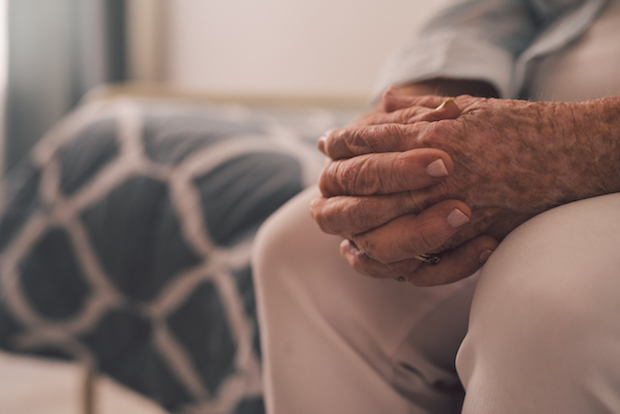Could elderly care use more spirituality?
 Photo/iStock
Photo/iStockAlong with screening patients for signs of illness and physical issues, what if elderly care providers also performed a check for spiritual needs?
Many nursing home residents rely on spirituality or religion as a way of coping with health and social issues. But patients with advanced diseases say their spiritual needs often aren't being met, and many of the nurses, social workers and personal care assistants who help them feel unprepared to respond to these needs.
"These are people who are trained to help in a certain way, and they aren't necessarily prepared for the religious or spiritual needs that arise," said Brandeis Professor of Sociology Wendy Cadge.
A collaborative study between Brandeis researchers and Hebrew SeniorLife - a senior care nonprofit and Harvard Medical School affiliate - found that workshops for clinicians significantly improved their comfort and ability when it comes to identifying and helping to address spiritual needs in patients. Participants learned to provide spiritual support appropriate within their professional roles, and to refer patients to chaplains when an expert level of care is called for in circumstances of spiritual distress or religious need.
Using actors to portray situations in which an individual or family member might benefit from spiritual support, the project provided a one-day training workshop for care providers, who took surveys before and after the workshop. On a scale of 1 to 5, the average score for perceived ability improved from an average of 3.1 to 4.5, while comfort improved from 2.8 to 4.2.
The project had a unique genesis. It was brought together by Cadge, who also served as a co-author on the paper. She previously collaborated with Mary Martha Thiel, director of clinical pastoral education at Hebrew SeniorLife and Sara Paasche-Orlow, director of spiritual care, on smaller research projects funded by the Stephen Kay Fellowship in Healthy Aging. Cadge learned of a similar training project Thiel had worked on with colleagues at Boston Children’s Hospital and together they wondered if it could be applied to geriatric care. This project was supported by the Josiah Macy Jr. Foundation.
The research itself was a collaboration with graduate students. The primary author of the paper was Julia Bandini, who at the time of publication was a doctoral candidate in the sociology PhD program in the Graduate School of Arts and Sciences. The statistics for the study were put together by Qian Zhang, then a PhD student at the Heller School for Social Policy and Management.
"Brandeis' small size offered the ability to reach out to different people and work together in a creative way," Cadge said.
Now, they are looking to whether the findings could be scalable. Carol Damm, an instructor in the Brandeis Graduate Professional Studies Learning Experience Design program and director of programs and assessments for Graduate Professional Studies at Brandeis, sat in on workshops to develop a hybrid in-person–online training that the team is currently building for wider distribution.
"The workshop experience, grounded in a methodology called relational learning, is transformational for the participants,' Damm said. "I am thrilled to have the opportunity to bring this important work to a broader audience using innovative technologies."
Categories: Humanities and Social Sciences, Research





